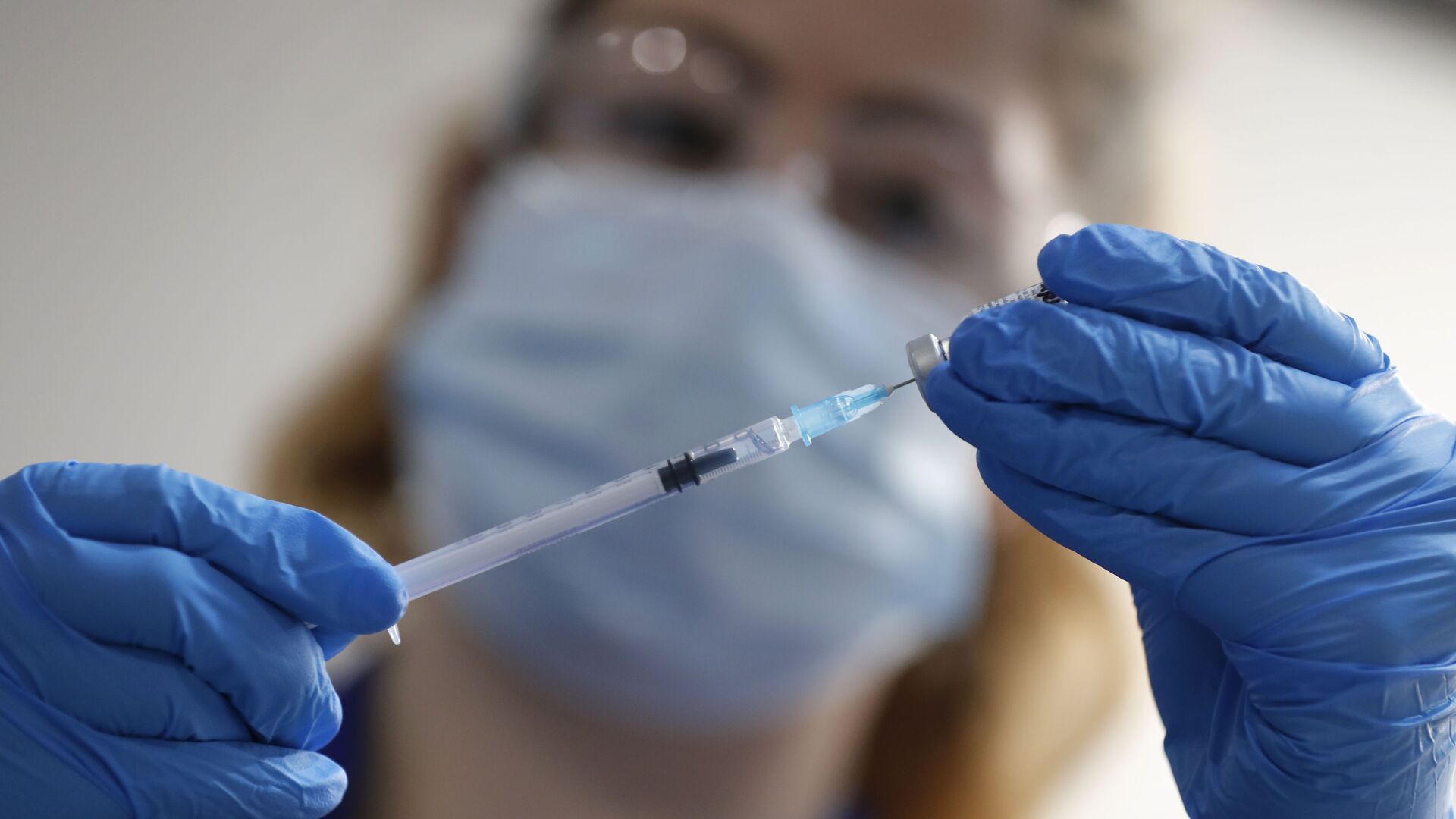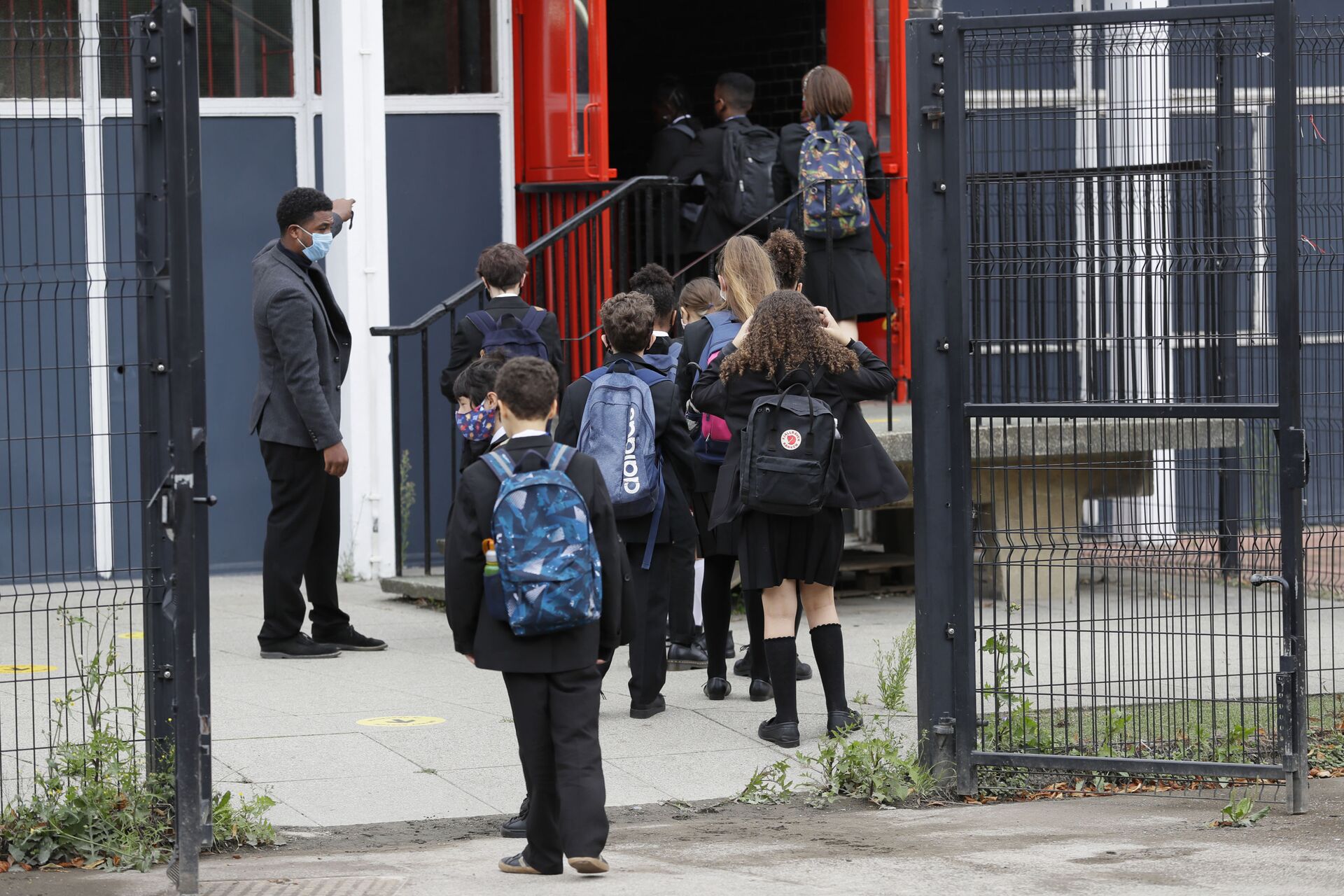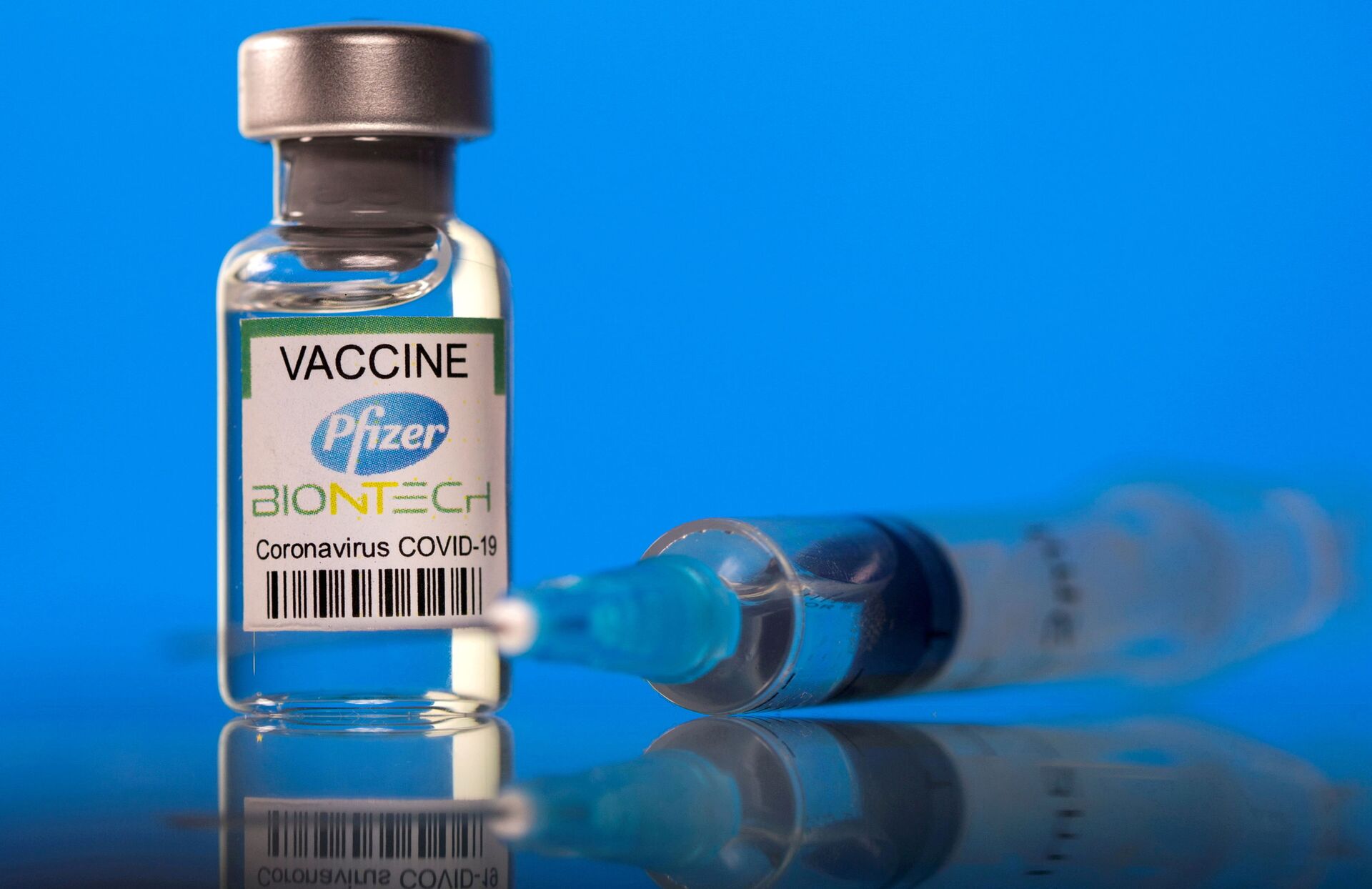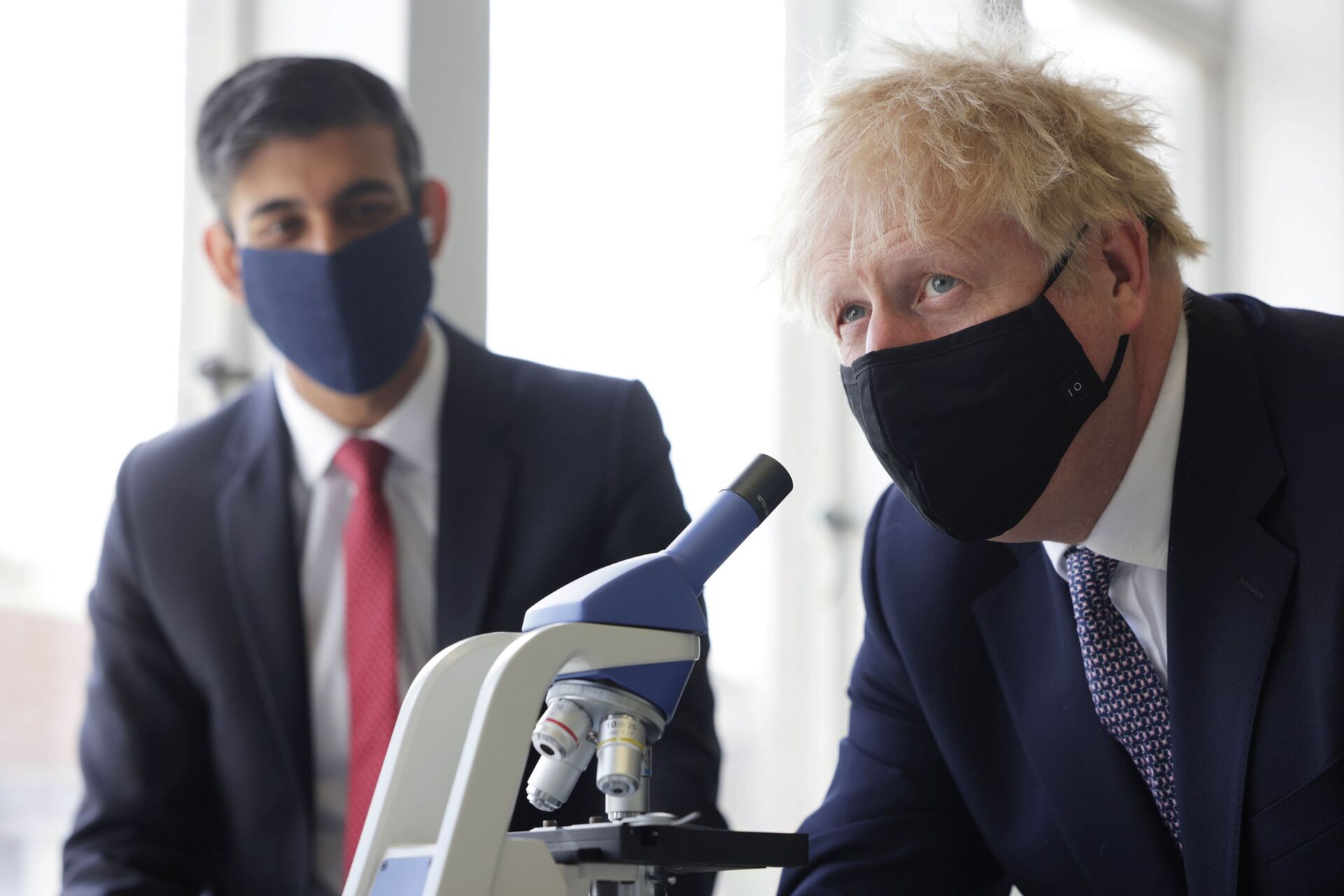UK Ministers May Push Ahead With COVID Jabs for Healthy 12-Year-Olds Despite Watchdog's Objections
07:49 GMT 04.09.2021 (Updated: 15:15 GMT 28.05.2023)

© AP Photo / Frank Augstein
Subscribe
In its advisory report, the Joint Committee for Vaccination and Immunisation (JCVI) on Friday failed to recommend COVID-19 vaccines for all healthy 12- to 15-year-olds, suggesting widening the jab rollout to include children with underlying health conditions in this age bracket.
UK cabinet ministers could reportedly disregard the recommendations of their official vaccine advisers and pursue COVID-19 vaccinations for all 12- to 15-year-olds, reported The Guardian and a number of other UK outlets.
As the next phase of Britain’s vaccination programme unfolds, ministers will purportedly be seeking extra evidence to support overturning the vaccine watchdog’s verdict and giving the green light to jabs for younger teens as early as next week.
“We don’t want to prejudge it, but vaccinations for all 12- to 15-year-olds is very much still on the table,” a government source was cited as saying.
Earlier, in its assessment provided on Friday, the Joint Committee on Vaccination and Immunisation (JCVI) refused to endorse coronavirus vaccines for healthy children aged between 12 and 15.
The JCVI statement said that despite acknowledging health gains from inoculating the entire age group were greater than the risks, “the margin of benefit is considered too small to support universal vaccination of healthy 12- to 15-year-olds at this time”.
Instead, the committee recommended expanding an existing programme of vaccinations for most at-risk children in this age bracket, suffering from health conditions such as chronic heart disease, lung, kidney, liver and neurological conditions, type 1 diabetes and severe asthma.
However, the JCVI advised the government to look at "wider issues", not considered it its remit, such as the level of disruptive impact of the coronavirus on schooling, and suggested seeking separate advice on this.
“This isn’t the JCVI saying no. They’ve said there is a marginal benefit, but as they make clear, they’re assessing it from a very narrow view,” a government source was cited as saying by The Guardian.
Experts Split Over JCVI Decision
Geoff Barton, general secretary of the Association of School and College Leaders, applauded the fact that “the door appears to have been left open” for pressing ahead with mass vaccinations for school-age children.
“The trouble is that time is pressing, the autumn term is upon us and we really do need a decision. We simply cannot have another term in which there is major educational disruption,” Barton said.
Professor Jeremy Brown, a JCVI member, was cited by Sky News as admitting the advisory body are "still evaluating the data" pertaining to vaccines.
"…There isn't any clear evidence that the vaccines that were given in this country so far have faded in their efficacy of preventing severe infection and hospitalisation… So we do have time to make that decision in a carefully considered way."

Year seven pupils are directed to socially distance as they arrive for their first day at Kingsdale Foundation School in London, Thursday, Sept. 3, 2020
© AP Photo / Kirsty Wigglesworth
Other scientists showered the JCVI decision with vehement criticism. Dr. Deepti Gurdasani, a clinical epidemiologist from Queen Mary University of London, called the move “completely shocking”.
“They are recklessly endangering children’s health based on ideology rather than science. The benefits of vaccination overwhelmingly outweigh the risks – this has been clear for a while. Yet, as more than 12 million children have been vaccinated across the globe, and 47% fully vaccinated in France, with many European countries close to this target, JCVI has taken an exceptional stance with absolutely no scientific justification," he said.
The UK JCVI (Joint Committee on Vaccination and Immunisation) is increasingly out of line with mainstream scientific opinion. Deepti explains why their surprising decision NOT to offer vaccines to 12-15s is flawed. https://t.co/EELHBSZ2Pt
— Trisha Greenhalgh (@trishgreenhalgh) September 3, 2021
The Department of Health and Social Care (DHSC) responded by saying the government will "consider the advice from the chief medical officers, building on the advice from the JCVI, before making a decision shortly".
The chief medical officers for England, Scotland, Wales and Northern Ireland will convene experts in clinical and public health to consider the issue, subsequently laying out their advice to ministers on whether a universal programme of vaccinating healthy 12 to 15-year-olds is viable, added the department.
England’s Chief Medical Officer, Professor Chris Whitty, and his counterparts in the devolved nations, are said to be under pressure from Downing Street and Health Secretary Sajid Javid to give the go-ahead to the vaccination.
‘Clearer Assessment Needed’
The Medicines and Healthcare products Regulatory Agency (MHRA) has approved the Pfizer and Moderna vaccines for those aged 12 and over after they met strict standards of safety and effectiveness.
The JCVI had been investigating rare instances of inflammation of the heart muscle, known as myocarditis, after administered doses of Pfizer or Moderna jabs. While the condition can result in short periods of hospitalisation, recovery is typically swift. Nevertheless, the JCVI concluded that more follow-up time was needed to make a clearer assessment.
Lawrence Young, a virologist from the University of Warwick, was cited by The Guardian as saying the risk of developing myocarditis was “significantly higher for those youngsters who have contracted Covid-19 compared to those who have been vaccinated with the Pfizer jab”.

A vial labelled with the Pfizer-BioNTech coronavirus disease (COVID-19) vaccine is seen in this illustration picture taken March 19, 2021
© REUTERS / Dado Ruvic
Meanwhile, the UK health secretary has reportedly asked the National Health Service (NHS) to go ahead with preparations for a possible roll out of vaccinations to 12 to 15-year-olds, pending the advice of chief medical officers.
It was added by the DHSC that if the age bracket were to be approved for the jabs, parental or carer consent would be required, similar to other school immunisation programmes. This comes as most schools in England have returned this week, with those advocating a universal jab rollout for younger teens highlighting the existence of such mass programmes for children in Israel, the US and Germany.




